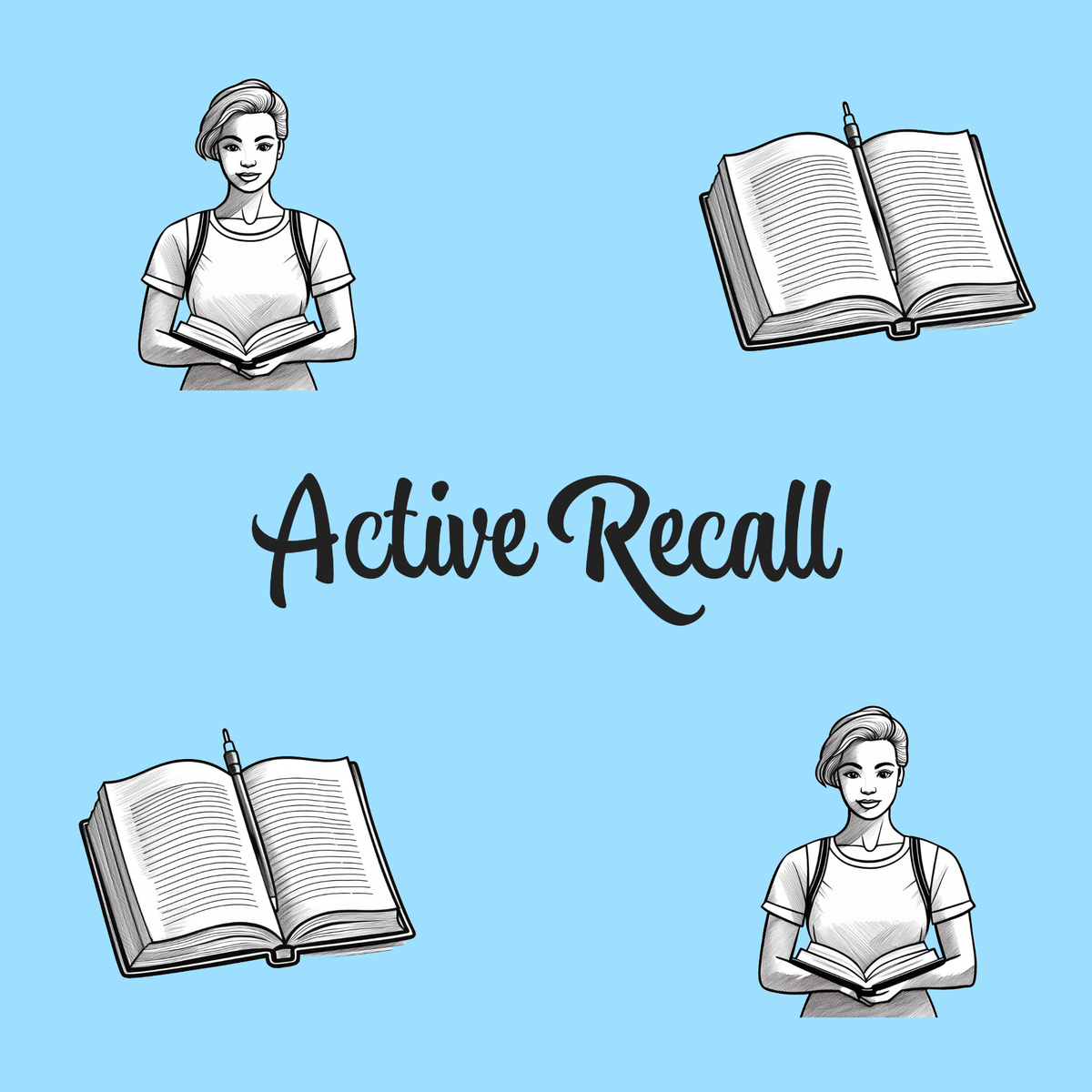Active Recall: The Key to Retaining What You Learn

Hi Team,
Memory is a crucial part of the learning process and one of the most powerful, evidence-backed techniques to improve in this area is active recall. Today’s newsletter is going to look at active recall, to understand the process, how to train this skill, and applying active recall effectively.
What is Active Recall?
Active recall is the process of actively retrieving information from memory without the need for external aids. If we compare this to other more passive techniques, such as re-reading or highlighting, by harnessing the power of active recall, our learning will be greatly elevated by the ability to bring forward information without need for further prompts.
Why Active Recall Works
Active recall is a technique that encourages effortful retrieval of information, which strengthens neural pathways. Key benefits include, enhanced long-term retention, clear identification of weak areas and being a more efficient learning method compared to passive studying.
Training Active Recall: Step-by-Step
1. Start small with focused sessions
- Taking on too much too soon may harm motivation, so start with small sections of the learning material. Use flashcards or apps that allow you to ask questions without the ability to offer clues or hints to the answer.
2. Use the “Question-First” approach
- Within your focused sessions, engage with how you would ask a question to receive the answer you will need. You will likely have to write these questions to create your flashcards, or similar based method for testing yourself.
3. Spaced repetition
- The key to true active recall is spacing your learning, so that you don’t suffer from short-term memory retention and the information is not truly stored. To avoid this, ensure that you plan reasonable spacing in your learning. To begin with, this might start as daily repetition, becoming more distanced as you can actively recall the information.
4. Variety in retrieval
- Information is retained better through different methods of learning, which can include writing, teaching and problem-solving. Once you have built confidence around your subject, try telling a friend or family about the information you have learnt.
5. Reflect and adjust
- Keep a “Recall Journal” that logs, at least weekly, how you are progressing with your active recall learning journey. Aim to really consider what methods are working best for you, to ensure that you build more of these techniques into your learning moving forward.
Advanced Strategies
1. Interleaved Learning
- This method encourages learners to alternate topics within sessions, to help boost adaptability. For example, if you are studying both coding and a language, learn both within the study session. The benefit of this process is encouraging our brains to adapt to information, as would be expected in real life scenarios.
2. Elaborative Interrogation
- Constantly seek to ask “what”, “how” and “why” questions about your material.
- “What” is this showing me?
- “How” is it telling me?
- “Why” is this important?
- This level of interrogation encourages active engagement in material and boosts not only the learning process, but also your ability to challenge information.
3. Application
- Ask yourself how the information you are learning could be practically applied to other areas of your life. For example, if you are learning to code, you might question the sort of code that lies behind websites, apps and technology you use in your every-day life.
Closing Remarks
Active recall is a transformative learning method, which encourages learners to start small and commit to consistent practice. The early stages of active recall are typically challenging, however the long-term benefits over passive methods of learning, ensure that this is worth the additional effort.
Did you enjoy what you read? Don’t miss out on weekly tips like these—subscribe now to stay on top of your personal growth journey.
